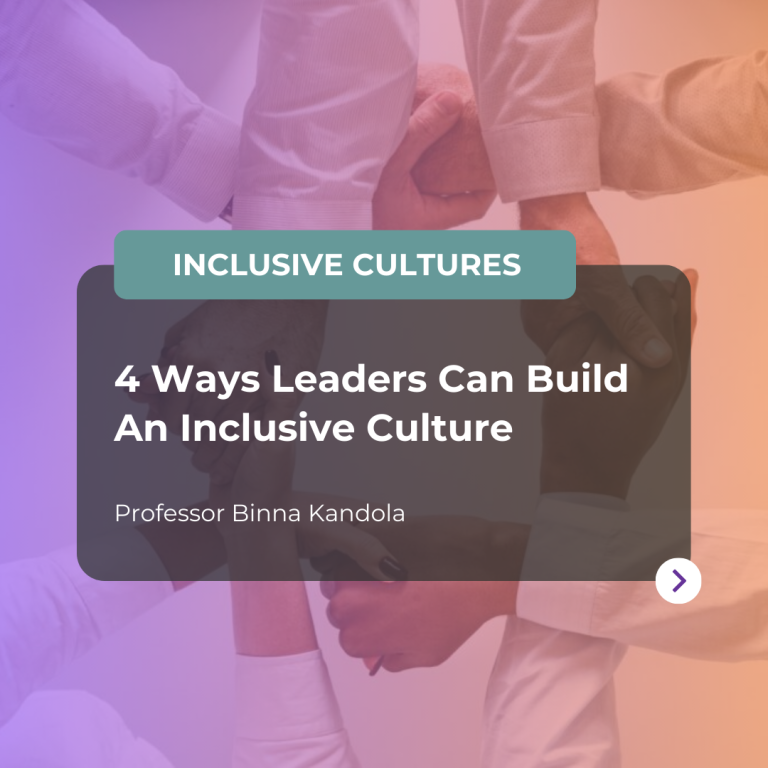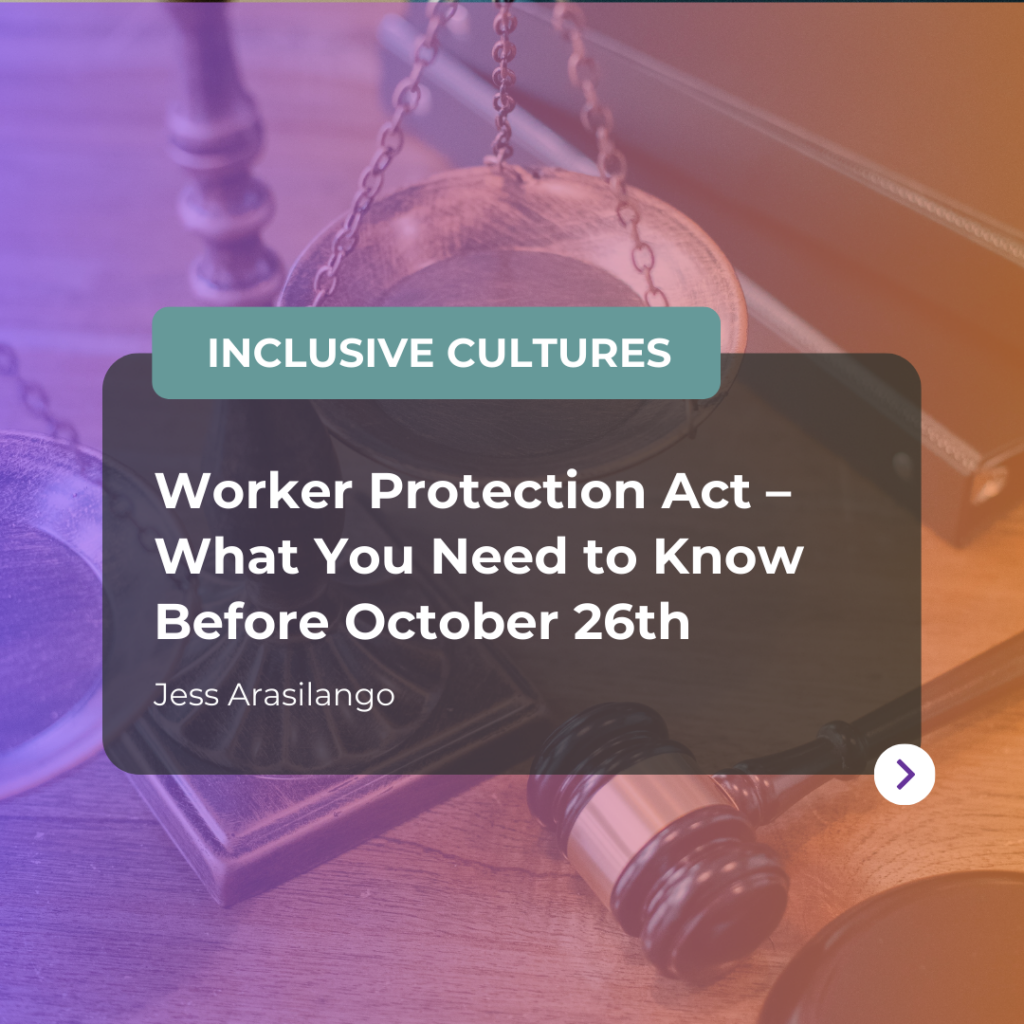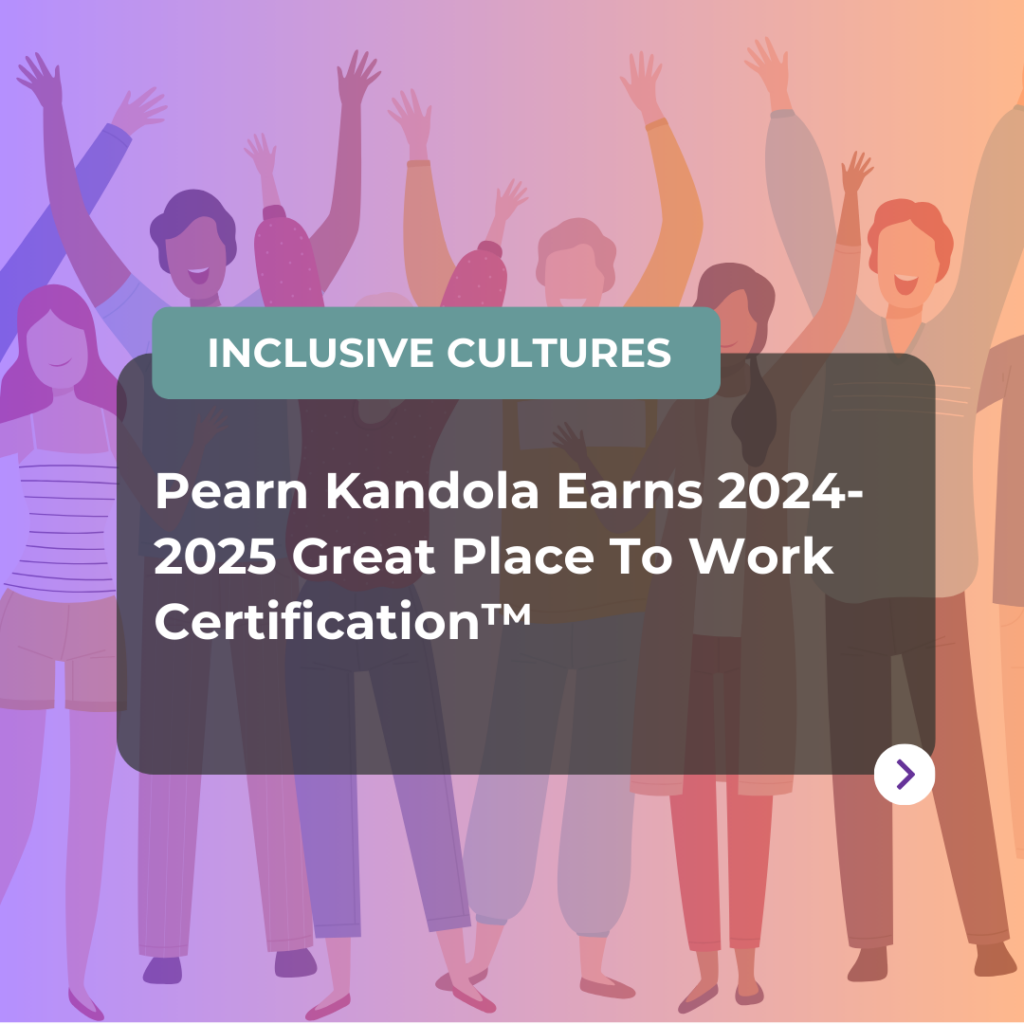For several years now, highly regarded research institutions have investigated the impact of diversity on innovation. The evidence is clear: a more diverse team is a more innovative team. Diversity is good for business.
But a common mistake is thinking that building a diverse team is “the job to be done”. In actual fact, it’s only one piece of the puzzle. For a team to truly achieve its potential, leaders must strive to foster a culture that’s not just diverse, but inclusive.
Why an inclusive culture is important
In an inclusive culture, people feel safe to make unusual or different suggestions; to say the thing that everyone in the room is thinking but nobody is saying because they’re worried about how it will be received. Diversity creates the potential for different opinions and ideas, but it’s inclusion that allows for that potential to be realised.
So, how can a leader build an inclusive culture? One in which a team of people from different technical and personal backgrounds will openly share a range perspectives and opinions? Well, to successfully create an environment such as this, there are four key actions that I believe must be undertaken.
1. Establish ‘psychological safety’
Team members should feel as though they can share their thoughts and opinions freely, so everyone feels heard and all ideas are on the table, not just those of a select few. In order for people to feel comfortable doing this, it’s vital that leaders establish a culture of psychological safety. They should consider how regularly they praise and recognise the skills that team members contribute to a session or a piece of work. It’s critical to ensure a leader knows their team well enough that they can connect with everybody, rather than just a select few people.
Another thing to consider is self-management. One of the biggest things that undermines psychological safety is a leader who shoots down a contribution in front of the rest of the team, regardless of how outlandish it might be. Likewise, losing their temper or talking to one team member behind another’s back can also jeopardise an atmosphere of psychological safety.
It only takes a leader to cross the line once to undermine several months, or even years, of creating a safe environment, not just in meetings but at all times. If a leader does slip up, they have to acknowledge and own it straightaway.
2. Discourage ‘groupthink’
If you’re hiring from a very select pool of people, you won’t get a broad range of different ideas and perspectives, which immediately snuffs out innovation and fosters a phenomenon that psychologists refer to as ‘groupthink’.
One of the most counter-intuitive things a recruiter can do if they’re keen to build an inclusive workforce is to think about ‘team fit’. Leaders may think they’re doing the right thing by recruiting someone who will gel with the rest of the team and work in harmony, but they’re essentially hiring people who are likely to think in the same way as the rest of the existing team.
Likewise, it’s essential to break up cliques that regularly work together. They might have a great understanding of how each other works, but there’s a good chance that they will have fallen into the groupthink approach. This means their ways of working could be habitual; they’ll think about things from the same perspective and their innovation levels will be lower.
3. Encourage ‘servant behaviour’
As well as enabling teams to make bold suggestions and challenge one another productively, an inclusive environment will also foster higher levels of servant behaviour, which should not to be confused with servant leadership. Servant behaviour is where team members work collaboratively on behalf of their colleagues. For example, an idea might be initially suggested by one person, but the rest of the team will work on behalf of that idea to bring it to fruition.
Rather than the person who originally proposed the idea being competitive about the fact that it’s their idea, or others not being as invested in the idea succeeding, it offers a much more collaborative move towards achieving something great as a team.
4. Be honest
A leader won’t be able to create a truly diverse environment if they aren’t honest about the action that they’re taking to make it a reality.
For example, leaders will often develop strong relationships with some team members but not others. They will believe they are being inclusive because they can point to some relationships where they have frank, open discussion and are happy for their team member to challenge them. However, you have to be able to say that about everyone in your team. If you can only say it about some of them, that is a classic indicator that you are generally not being inclusive.
Leaders should regularly engage in self-reflection; especially on their relationships with their team. They can also invite feedback from their employees as well. Frank, honest advice on how you perform against some of these indicators is crucial, but only if you listen and use it to improve your approach.
The cornerstone of any inclusive culture is trust. It’s about bringing different people together and making sure that they feel safe enough to openly share the full wealth of their background, knowledge and opinions, both to each other and to their leaders in a healthy, honest environment.
Diversity plays a role, and it’s even true that diverse teams are likely to be more inclusive. It’s important to remember though, that it’s part of a wider course of action, as opposed to the only solution. The real secret ingredient when it comes to fostering cutting-edge innovation is inclusion.
This article is part of our series about Racism at Work: The Danger of Indifference. If you would like to purchase a copy, go to Amazon.
If you would like to find out more about our Inclusive Leader or Inclusive Teams programs, please email info@pearnkandola.com.








